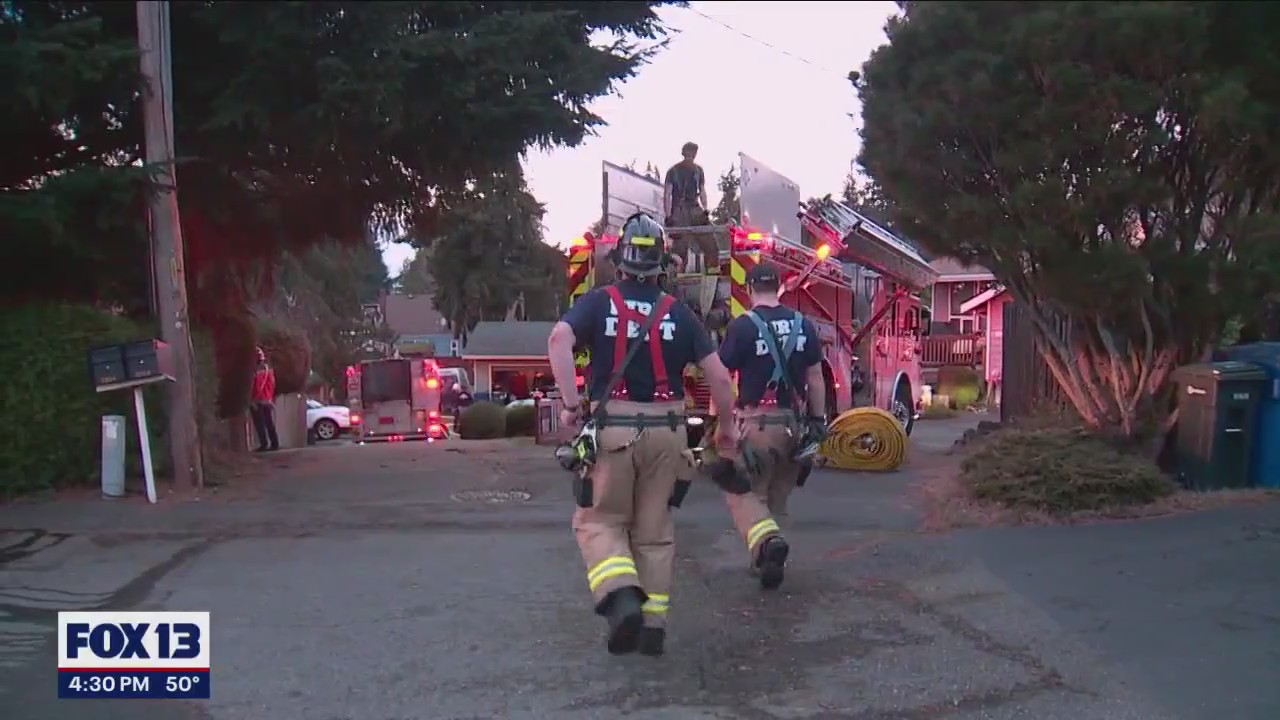'This could be the last straw'; Local agencies launch mental health programs for first responders

King County firefighters creating mental health programs for first responders
During the pandemic, first responders were under a high level of stress – and that unfortunately is becoming worse, with rising levels of local violence, drug abuse and homelessness.
RENTON, Wash. - The alarm is sounding at fire departments around Western Washington—but this emergency is personal for the men and women we rely on to rescue us in times of need.
During the pandemic, first responders were under a high level of stress. Unfortunately, that stress is worsening, with rising levels of local violence, drug abuse and homelessness.
Now, a new behavioral health program is getting set up by local fire leaders to help.
Renton Regional Fire, last year alone, responded to more than 23,000 calls. Those emergencies ranged from homes on fire to health calls. Bottom line: they want firefighters to be at their best, and they can't do that if something is weighing on them mentally.
The concern for firefighters mental health has never been greater than right now.
"We see burnouts, we see high retirements," said Deputy Chief Chuck DeSmith with Renton Regional Fire Authority.
Firefighters, EMTs, the people who come to the rescue in times of need, are now seeking help for themselves.
"Suicide, this is the highest it's ever been," Deputy Chief DeSmith said.
Renton Regional Fire Authority is one of 12 fire agencies Western Washington working to find a solution to the mental health crisis across first responders.
"Something to help at least address the fact that we have all these needs," Deputy Chief Chuck DeSmith said, "and we needed it yesterday."
Fire stations provide crews with everything they can to stay safe. Helmets, boots to protect themselves from flames. Most recently, bulletproof vests, in case of gun violence at a response.
Yet, in 2023, there's no set service to help crews cope with the aftermath.
"Normally, when we enter this job, we know we're going to see those things and we know we can file them away in our brains," Deputy Chief DeSmith said. "But, if things are difficult at home, this could be the last straw."
Deputy Chief DeSmith has been a firefighter for more than 30 years.
"When I started in the 80s, the way that the community would use 911 was very different than today," Deputy Chief DeSmith said. "It was very much associated with emergencies."
He said, calls now are for chronic health needs.
"Sometimes our firefighters have to see these patients over and over every day," Deputy Chief DeSmith said. "And when they do that, it affects them, because they got into this job to help."
The big three that stand out, he said, are people who are experiencing homelessness, people with mental health problems, and opiate addictions.
"When you end up giving Narcan to the same person twice in one day, it does impact us, because we want to help," Deputy Chief DeSmith said. "And these are individuals that we know, they have chronic needs."
He added, more of the 911 calls are for violence.
"These are not accidental shootings," said Deputy Chief DeSmith said. "These are targeted shootings and stabbings that our folks are coming into work, and they're seeing this trauma."
How that trauma affects firefighters when they go home to live their life with their partner, their family—that's where the concern is.
This behavioral health program in the works is a start.
"We can't control who calls 911 for what," Deputy Chief DeSmith said. "I cannot make this job any more safe, or what calls they go on. What I can do is understand how we respond and how to support our firefighters, not only here at work, but at home."
The University of Washington ran a survey for all EMS agencies and dispatch in King County, made up of more than 3,000 workers. Almost 40% of them said they were feeling burnout. Women reported much higher than men.
RELATED: Increasing number of Seattle firefighters reporting cases of assault, threats and slurs on the job
Get breaking news alerts in the FREE FOX 13 Seattle app. Download for Apple iOS or Android. And sign up for BREAKING NEWS emails delivered straight to your inbox.
The behavioral health program is still in its early stages. They've identified problems and concerns that are the root of them. Now, they're working on possible solutions. They're also contacting insurance companies to see what services could qualify and how they can play a role in the program.

